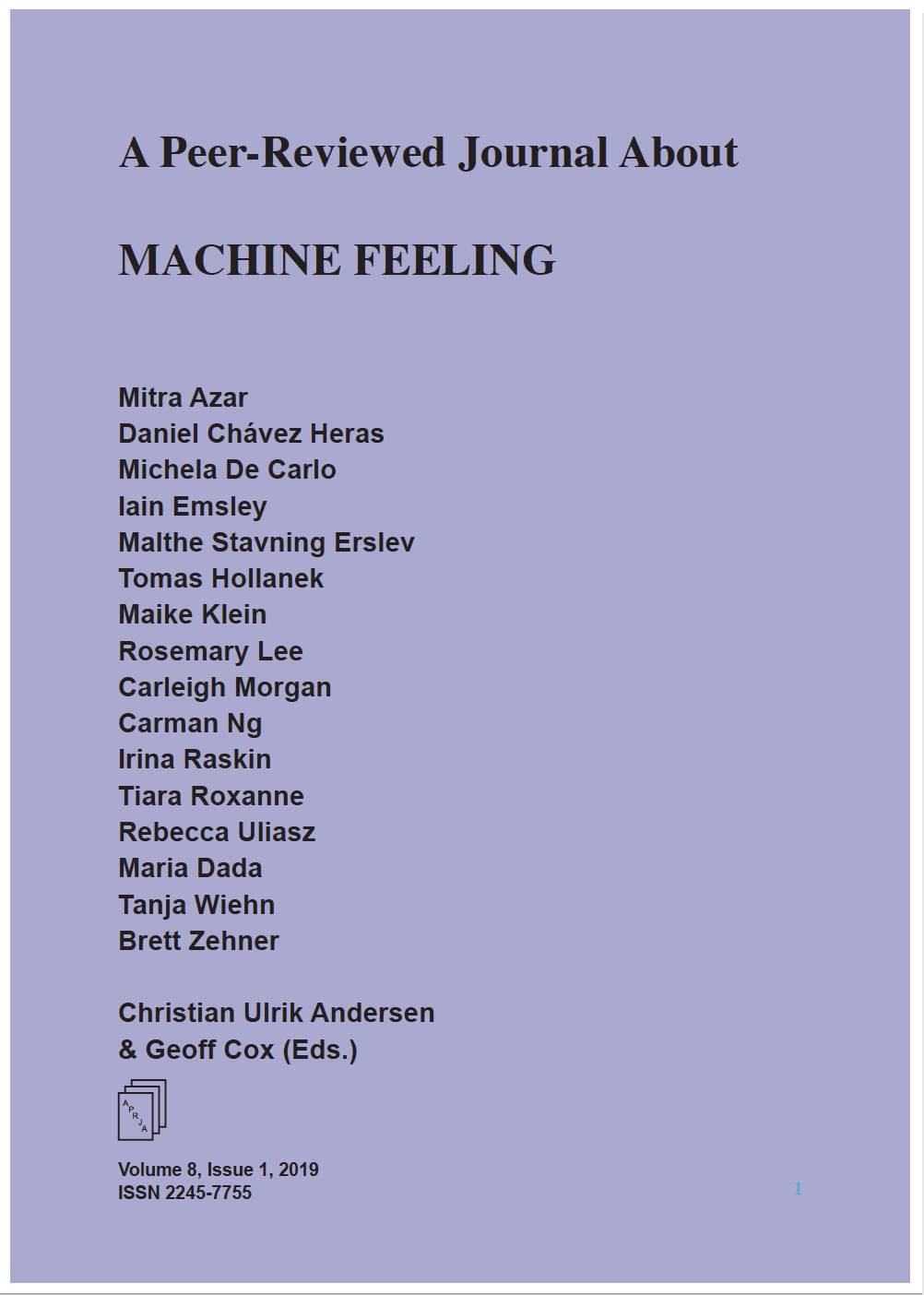Assemblages of desire
Reappropriating affective technologies
DOI:
https://doi.org/10.7146/aprja.v8i1.115417Abstract
This paper considers the operations of affective technology within contemporary technocapitalism through affect theory. It is argued that affective technologies enter into power arrangements with political and corporate interests, altering an acting bodies’ affect — in the Spinozan definition, the “capacity to affect and be affected” — within social and political life. Affective computation uses machine learning techniques to ‘capture’ and quantify affective intensities in data form, automating a normalizing logic of division and categorization that classifies bodies, emotions, and objects. Affective technologies invoke what Luciana Parisi called “automated decisionism,” where machine learning processes digitize incomputable states in order to impose a self-rationalizing logic structure that regulates a user-subject’s actions (Parisi, “Reprogramming Decisionism”). Affective technologies exert biopolitical control over users through quantified logics of division and devaluation. It is suggested that
affect might simultaneously operate as an analytic lens to speculate on whether collective affectivity and political agency might be reclaimed through using these technologies. The following concludes with an engagement with Deleuze and Guattari’s “assemblages of desire” to suggest that affective technologies might produce other micropolitical arrangements that increase user agency as social and political subjects.
Downloads
Published
Issue
Section
License
Copyright (c) 2019 A Peer-Reviewed Journal About

This work is licensed under a Creative Commons Attribution-NonCommercial-ShareAlike 4.0 International License.
Copyrights are held by the individual authors of articles.
Unless stated otherwise, all articles are published under the CC license: ‘Attribution-NonCommercial-ShareAlike’.
The journal is free of charge for readers.
APRJA does not charge authors for Article Processing Costs (APC)


